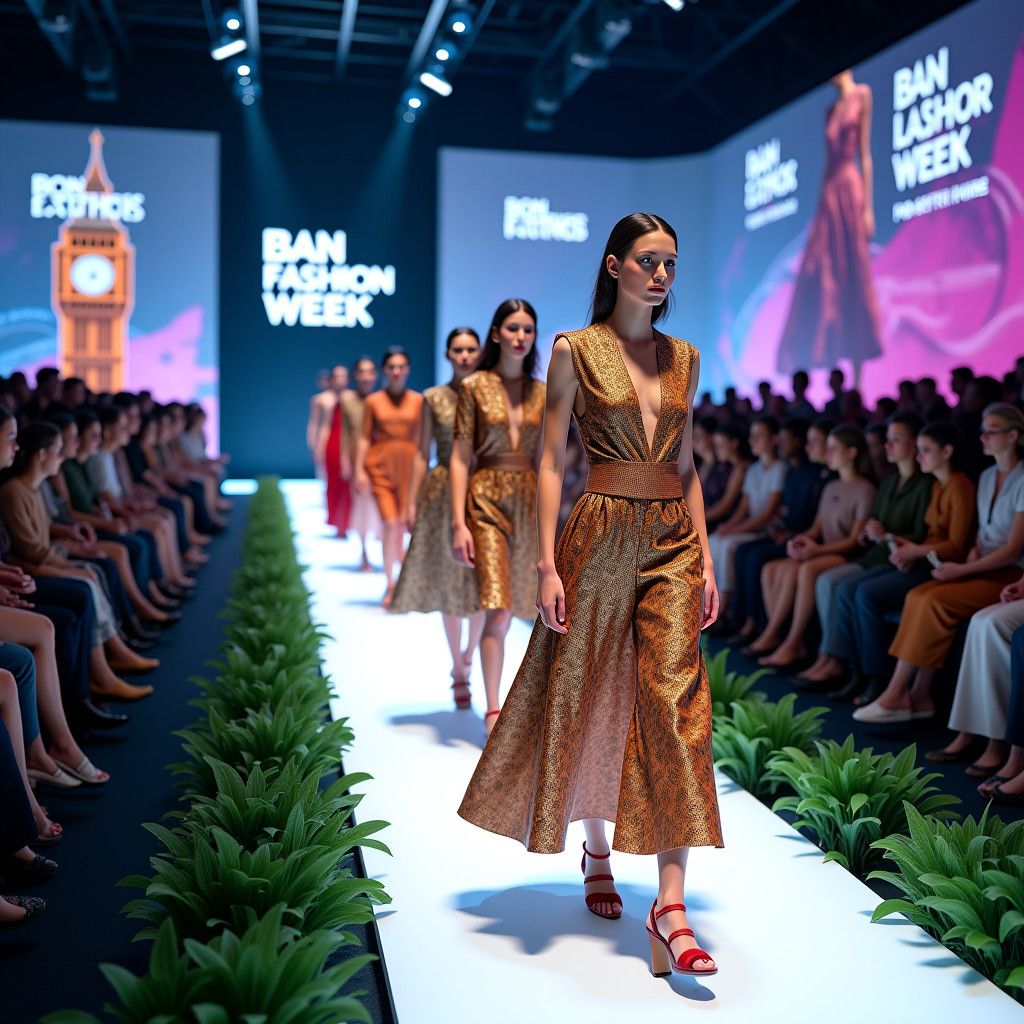As fashion continues to adapt to the changing cultural landscape, London Fashion Week (LFW) has taken a significant step by introducing a ban on the use of exotic animal skins on the runway. This decision extends the previous ban on fur, marking a shift toward more ethical practices in the fashion industry, as announced by David Leigh-Pemberton, the British Fashion Council’s deputy director for policy and engagement.
Pressure from animal rights groups has surged in recent years, reflecting a broader trend among consumers who demand higher ethical standards from brands. The aim is to make the use of materials such as crocodile and snakeskin as unacceptable as fur coats in mainstream markets. This move is particularly pertinent as luxury fashion houses navigate their relevance amidst the dominant influence of Paris and Milan Fashion Weeks.
Over the last decade, many prominent brands have ceased to use fur in their collections. By doing so, they have aligned themselves with a growing cultural conversation focused on ethical consumption, recognizing the benefits of positioning themselves as environmentally conscious. However, the discourse surrounding exotic skins presents a more complex challenge. Exotic leathers are integral to creating some of the most prestigious luxury items, with higher profit margins than traditional leather goods and an established standing within the markets.
Despite this, LFW primarily features emerging and young designers who are less likely to use exotic materials compared to traditional luxury brands. Notably, Burberry, the most prominent brand on the LFW schedule, publicly committed to phasing out exotic leathers back in 2022. This trend among emerging designers suggests that the new ban will mostly affect a small segment of the overall market.
The decision to prohibit exotic skins forms part of a broader initiative led by the BFC’s Institute of Positive Fashion, which aims to introduce comprehensive standards for more sustainable practices in the industry. Leigh-Pemberton has indicated that the organization is also seeking input from industry stakeholders on how to manage the use of feathers in fashion going forward.
Advocates for animal rights, such as Emma Hakansson, founder of Collective Fashion Justice, have been vocal about their desire for a completely wildlife-free policy within fashion events. Smaller fashion weeks, such as those held in Copenhagen, Berlin, and Melbourne, have already adopted similar restrictions, reinforcing the growing momentum towards eliminating materials that exploit wildlife.
While major luxury brands like Hermès, Kering, and LVMH assert that they are investing significantly in responsible sourcing practices for crocodile and snakeskin leathers, critics argue that the industry’s governance is fraught with vulnerabilities. Recently, high-profile cases like the smuggling conviction of designer Nancy Gonzalez underscore the continuing risks, highlighting that despite increasing regulations, loopholes still persist.
The upcoming changes at London Fashion Week indicate a larger paradigm shift in the fashion industry, as brands are increasingly held accountable for their choices. Consumer preferences are shifting toward brands that prioritize sustainability and ethical sourcing, compelling even luxury houses to adapt or risk losing relevance.
The ban on exotic skins not only reflects the demands of ethical consumers but also positions LFW as a leader in the ongoing transformation of the fashion landscape. This decision sends a strong message that the industry is capable of evolving to meet higher ethical standards, paving the way for a future that respects animal rights and promotes sustainable practices.
As LFW sets the stage for a more inclusive dialogue around what materials are acceptable, other fashion weeks worldwide are likely to follow suit. The fashion industry’s alignment with consumer values will continue to shape the collections and brands that find success in this new era, demonstrating that ethical considerations can indeed coexist with luxury and prestige.












